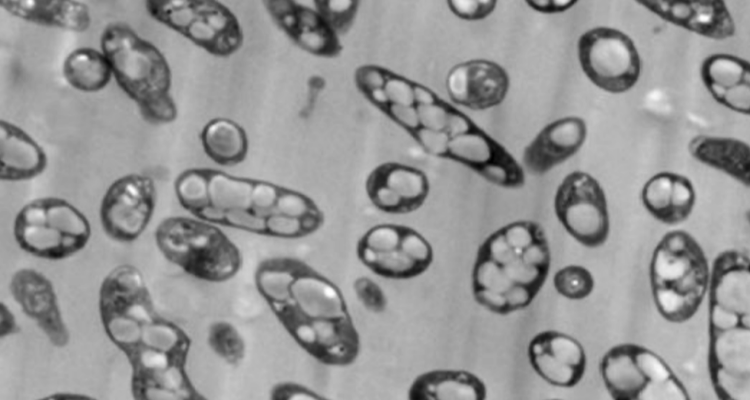
Project
BIOS: a bio-intelligent DBTL approach for sustainable bio-manufacturing
Within the synthetic biology field multiple game-changing innovations were produced in the past decades to substitute and reverse polluting fossil-based practices in production processes. However, its main bottleneck for accelerating its potential to real application is the rapid and effective implementation of novel genetic tools and the screening of highly suitable engineered microorganisms.
Project aims
This interdisciplinary project aims to exploit the bio-intelligent DBTL (Design-Built-Test-Learn) cycle by bridging microbiology, molecular biology, biochemical engineering with informatics, automation engineering and mechanical engineering. The novel outcomes will be showcased by the production of (hydroxy) fatty acids and PHA from waste streams in the industrial relevant chassis Pseudomonas putida.
Background
The global climate change has a rapid and increasing influence on our daily lives. Thus, decision makers worldwide are seeking solutions to prevent further rise in the anthropogenic emissions of atmospheric greenhouse gases. Moreover, fossil fuels should remain unused and unextracted, which are still used for the production of our daily (single-use) commodities. These are the cause of the immense pollution we are facing even in the seemingly untouched natural environments of the world. The immediate implementation of a circular economy with a high recycling rate of compounds and products is the only way to sustain a high standard of living for the current and the next generation.
We need a radical switch from the current industrial production to a circular sustainable economy. Luckily, biotechnology and synthetic biology research and innovation may offer multiple solutions on how to shift towards a green bioeconomy by exploiting and enhancing microorganisms and their remarkable properties for the numerous tasks in order to mitigate the global damage. Yet, microbial strains need to be modified to properly perform in the harsh industrial processes (high temperatures, pH fluctuations, high pressure) and to compete with their carbon-to-product formation with the current fossil-based production lines.
Effective employment of the abundant novel tools for strain engineering for optimal performance of the chassis remains, however, very challenging. The main bottleneck to transverse the ‘valley-of-death’ for a genuine implementation in bioprocesses is the time-consuming screening of the new production strains. Radical new approaches are thus needed to increase speed and success rate of this engineering discipline. Both are essential aspects to enable mere biologically possible processes to become economically feasible and hence to truly foster a shift from the current non-sustainable production processes to a circular bioeconomy.
In this interdisciplinary project with several international partners, we aim to accelerate and improve the conventional strain and bioprocess engineering. The overall ambition is to create a bio-intelligent DBTL cycle with the development of novel innovative metrics, biosensors and bioactuators and to fully integrate these in the automation platform for interaction with each other.
The novel bioengineering approach will be showcased by Pseudomonas putida producer strains for terpenes, renewable-based polyesters and methylacrylate. Our group will look especially into the sub-project of producing hydroxy-fatty acids and PHA for polyesters from one-carbon and lignin waste stream.
Project description
A recently developed P. putida strain enabled to grow on formate and methanol, by members of our group, will be used as starting point for this project to further improve the microorganism’s ability to grow on one-carbon-sources. Furthermore, we will link this synthetic module to the production towards the fatty acid and natural occurring PHA synthesizing pathways of P. putida.

We will exploit general and advanced molecular biology tools (CRISPR-based genome editing, rational metabolic design with ALE, HPLC, etc.) and genome-based modelling of our chassis to reach our goals.
Further, this project aims to establish standardized operational procedures and protocols in the framework of a new bio-intelligent DBTL cycle in tight collaboration with our project partners for the transition of the current ‘trial and error industrial biotechnology’ to a more predictive, automated one.
Main goals
- Cellular Twining (metabolic modelling): building an enzyme-constraint genome-scale model of P. putida
- Developing of advanced molecular tools (CRISPRi, CRISPR-transposon, recombineering) and establishing a chemical transformation procedure for P. putida
- Improvement of recently engineered P. putida for growth on methanol/formate/lignin derivates using ALE
- Engineering P. putida for the production of hydroxy-fatty acids and PHA, for the further synthesis of polyesters from methanol and formic acid